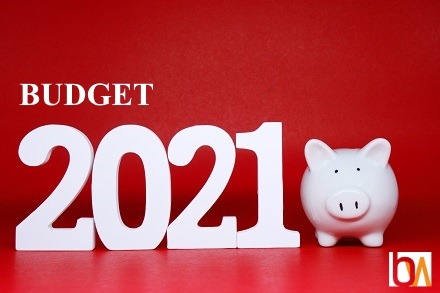In his Budget 2021 speech today, Mr Sunak emphasised that the acute crisis the UK faced during the pandemic had led to the highest level of borrowing outside war time. The government intends to support people and businesses, fix the public finances and rebuild the economy in an investment led recovery.
Mr Sunak announced a number of extensions to Covid support measures and introduced new schemes:
Covid Support Measures:
- Furlough scheme extended until end of September, with no change in employee terms. Businesses will be asked to contribute 10% in July and 20% in August and September.
- 4th Self Employment Income Support Scheme (SEISS) grant confirmed and a 5th grant announced, with a claim date of 5 July. For the 5th grant, if turnover has fallen by 30% or more, the usual 80% grant will be available. If turnover has fallen by less than 30%, the grant will be 30%. The newly self employed who had filed a tax return for 2019/20 by 2 March 2021, will be eligible for the 4th and 5th SEISS grants.
- New Restart grant announced. Available from April, it is intended to help closed businesses reopen, with retail grants of up to £8k and hospitality and leisure grants of up to £18k available.
- As the Bounce Back Loan Scheme and the Coronavirus Business Interruption Loan Schemes come to an end, the new Recovery Loan Scheme is introduced to take their place. The scheme will allow any business to access loans of between £25k to £10m, backed by an 80% government guarantee.
- The business rates holiday has been extended until the end of June with the remaining 9 months of the year being discounted by a third.
- The 5% reduced rate of VAT applying to the hospitality and leisure sectors has been extended until 30 September and a 12.5% interim rate will then apply until April 2022.
- The £500k SDLT nil rate band has been extended until 30 June, reducing to £250k until then end of September before returning to its original rate of £125k as of 1 October 2021.
Personal Tax Thresholds
The Chancellor clearly has to find a way to recover some of the costs of this support. He did not raise income tax, National Insurance or VAT rates, but he did freeze personal tax thresholds from April 2022 until 2026, meaning that from April 2022 the thresholds will remain at £12,570 and £50,270 until April 2026. IHT, pension lifetime allowance and the annual exempt amount of Capital Gains Tax remained unchanged.
Corporation Tax
The Chancellor announced that Corporation Tax would rise to 25% from April 2023, with the following protections:
- Businesses generating profits of less than £50k will pay a newly introduced small business rate of 19%.
- Businesses generating profits above £50k will be subject to a tapering rate, reaching 25% for businesses generating profits of over £250k.
- The tax treatment of losses was made more generous, allowing carry back losses of up to £2m for three years.
Business Investment
The government aims to boost business investment and increase productivity by introducing a capital allowances Super Deduction. The Super Deduction is a new 130% first-year capital allowance for qualifying plant and machinery assets; and a 50% first-year allowance for qualifying special rate assets.
Clearly the Chancellor is keen to continue to support businesses and individuals through the pandemic and to begin to repair the public finances whilst stimulating business investment.
We will bring you more details and commentary as we receive them. For now, we leave the last words to our tax team.
Richard Coombs, Tax partner comments:
“No immediate sting in the tail. With such extravagant giveaways the Chancellor has clearly decided that the economy is going to have to invest itself out of the mire. The expected immediate tax hikes did not transpire and instead the Super Deduction will provide a shot in the arm for capital expenditure intensive industries. The proposed corporation tax rise to 25% will only take effect in 2023 – plenty of time to reduce it again if things are going well.”

